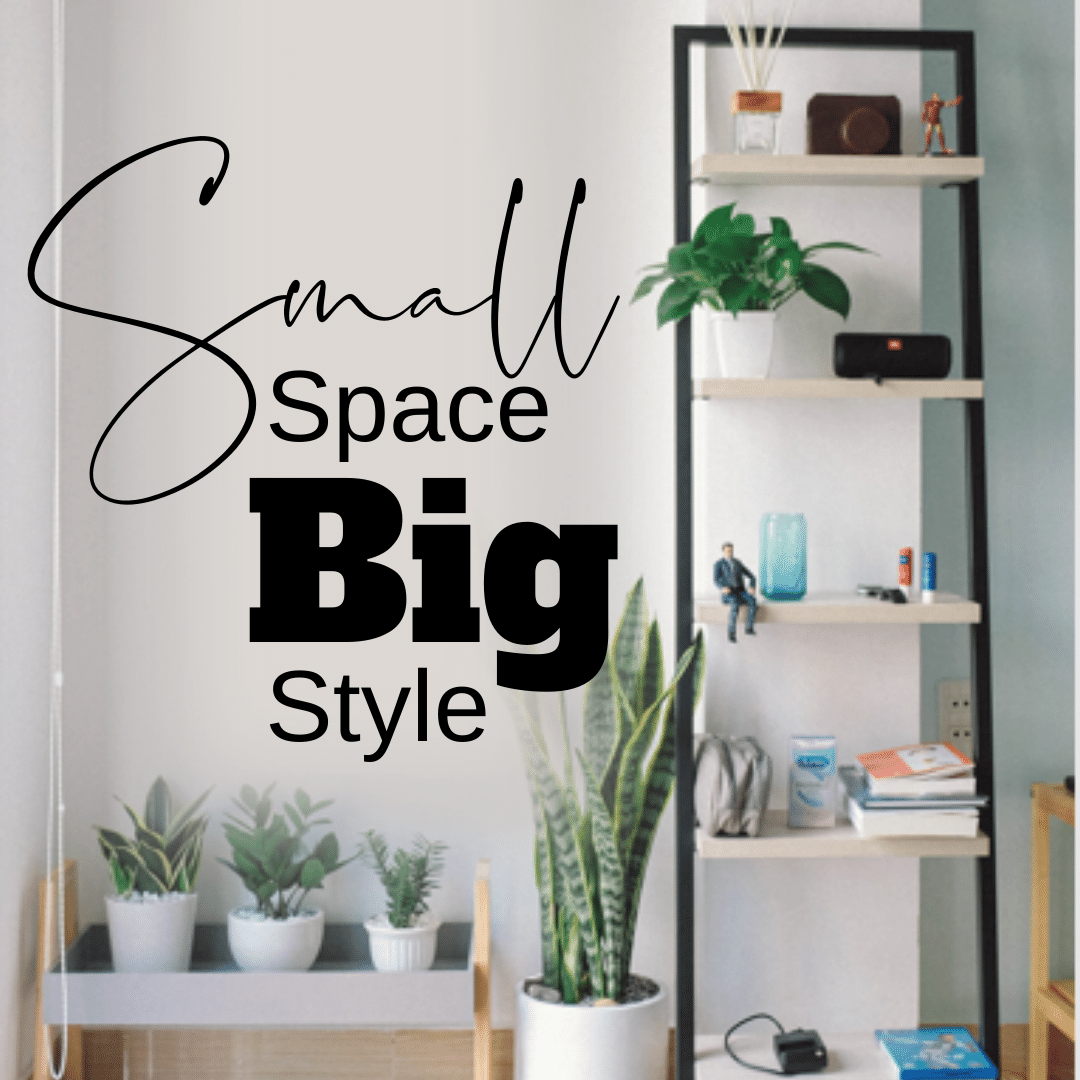Let me guess, you’ve been moving your sofa around the living room for days and you can’t get your room looking like Joanna Gains just left after waving her magic wand. Am I right? Well before you ditch the sofa and throw a bunch of pillows directly on the floor and call it done, let me show you how to get your small living room furniture arrangement right. Here’s six simple steps and a super useful freebie to get you going in the right direction – the direction of done! I promise that you’ll have a much better plan of attack at the end. Shall we begin?
How To Get Your Small Living Room Furniture Arrangement Right!, Step 1: Measure Your Space
If you’ve been reading through a few of my posts here or following me for a while, measure your space has come up on quite a few occasions. That’s because it is the absolute most important first step to any space planning mission! Space planning cannot happen without measuring the space. I would also argue that moving furniture around until you’re too tired to care what your living room looks like is not a good use of time or energy. In the interest of saving time, right now, I’m not going to go into a full tutorial for measuring. Instead, I have this super handy, short guide to measuring floor space right here. It’s FREE so go ahead and sign up with your email to get the instant download. It will literally walk you through how to measure your space so you can get the right look, feel and function for your arrangement the first time! Forget physically moving everything around!
How To Get Your Small Living Room Furniture Arrangement Right!, Step 2: The Floor Plan
Now that you’ve measured your space and you know the lay of the and, time to start plotting in your furniture. The easiest way to do this is to create an electronic floor plan. I love to use Floorlanner.com. You can create one free space plan a year and additional plans for $5.00 each, as of this post.. Trust me, it’s worth taking a look. I posted a link below, and no I’m not getting paid for this referral, I just love the program.
Go ahead and transfer all of your measurements from your room sketch into Floorplanner and then you will have a “to scale” plan of your space. That means, if you measured correctly, the electronic floor plan will be an accurate representation of your actual floor space.
How To Get Your Small Living Room Furniture Arrangement Right!, Step 3: Furniture Placement
Here’s where the fun begins. If you’re using Floorplanner.com, you can choose from a ton of furniture graphics for whatever room you’re working on. Since we’re working on a small living room here, let’s think about the furniture placement for this room.
The largest piece of furniture, usually the sofa, sectional, etc., goes on the longest wall opposite the fireplace. Ideally, this wall has the longest run without doorways or built-in shelving, etc.
By placing the largest piece on the longest wall opposite the focal point, you should have room for end tables or a small side table so you have some place to put a lamp, or just a place to put stuff down.
How To Get Your Small Living Room Furniture Arrangement Right!, Step 4: Eliminate Multiple Focal Points
What I mean by this is that you should have one main focal point in your small living room. If it’s the fireplace, then that should be where your main seating is opposite. Sometimes it’s necessary to edit what’s most important in a small space when it comes to furniture placement.
If you’re main focal point is the TV and it’s on another wall than the fireplace is, then the TV is the main focal point and it shouldn’t be all crammed on the same wall as the fireplace. Cramming it all together usually makes for a cluttered, unbalanced look.
How To Get Your Small Living Room Furniture Arrangement Right!, Step 5: Secondary Furniture Placement
Time to bring in the supporting furniture. This is small chairs or secondary seating like a loveseat, etc.. Going back to the longest wall. Bring in the secondary seating perpendicular to the sofa. This will crate a nice conversation area and will provide visual balance to the opposite, focal wall.
How To Get Your Small Living Room Furniture Arrangement Right!, Step 6: Accent Furniture
Now fill in the space in between your main furniture and secondary pieces with some accent pieces, tables, coffee table, accent chests, etc. I can tell you when you get the main pieces places, this part goes much easier. Plot out where the pieces will fit on your floor plan.
In a small space, try to use multi-function furniture to do double duty. For example, a group of nesting tables will take up the same floor space as one table but, when you need two other tables, you can spread them out. Another great piece of furniture to use in a small living room is a storage ottoman. It can do triple duty – put your feet up, store blankets pillows, clutter, and you can put a tray on it to serve too!
How To Get Your Small Living Room Furniture Arrangement Right!, Bonus Tip: Move Furniture Off The Wall
When you have your plan looking the way you want it, try moving your furniture off the walls just a bit, 12 to 18 inches can make all the difference. It sounds counter-intuitive but it actually crates the illusion of more space.
I like to use a sofa table behind a sofa or sectional that is close to a wall. It gives the space dimension and provides a surface to display things. This all creates layers which is important in any room, especially a small living room!
And there it is! By knowing exactly how much space you actually have in your small living room, you can find exactly the right placement to make it shine! You’ll have enough seating for everybody and it’ll be comfortable, balanced and inviting! Best of all, you can apply this same process to bedrooms, office space, dens, what have you.
Here’s a couple links to show you how to get your small living room furniture arrangement right, fast:
Michael is Principal designer and blogger at Michael Helwig Interiors in beautiful Buffalo, New York. Since 2011, he’s a space planning expert, offering online interior e-design services for folks living in small homes, or for those with awkward and tricky layouts. He’s a frequent expert contributor to many National media publications and news outlets on topics related to decorating, interior design, diy projects, and more. Michael happily shares his experience to help folks avoid expensive mistakes and decorating disappointments. You can follow him on Pinterest, Instagram and Facebook @interiorsmh.








